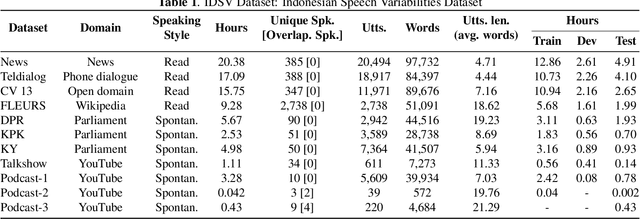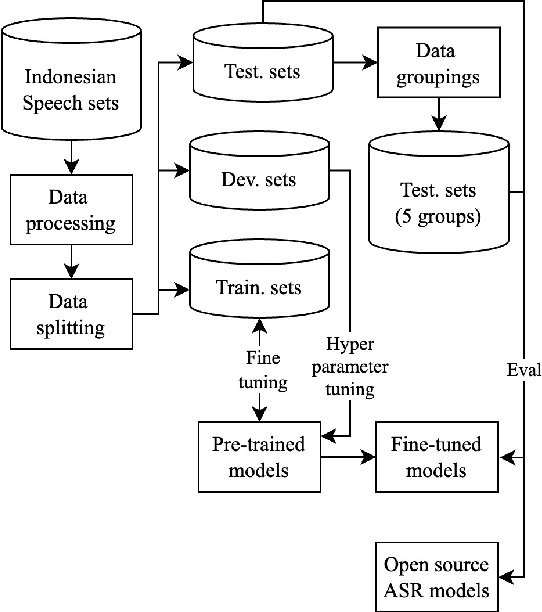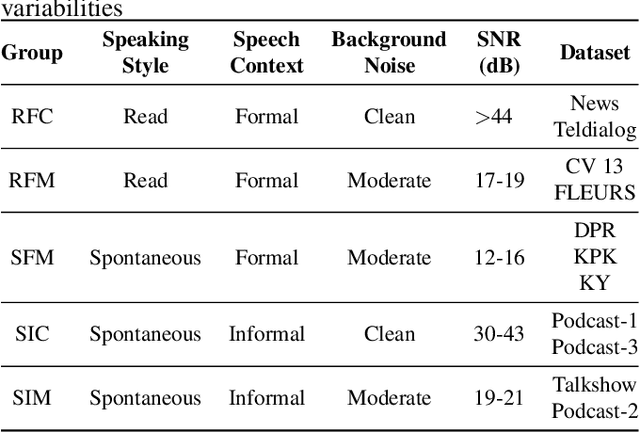Dipta Tanaya
Continual Learning in Machine Speech Chain Using Gradient Episodic Memory
Nov 27, 2024



Abstract:Continual learning for automatic speech recognition (ASR) systems poses a challenge, especially with the need to avoid catastrophic forgetting while maintaining performance on previously learned tasks. This paper introduces a novel approach leveraging the machine speech chain framework to enable continual learning in ASR using gradient episodic memory (GEM). By incorporating a text-to-speech (TTS) component within the machine speech chain, we support the replay mechanism essential for GEM, allowing the ASR model to learn new tasks sequentially without significant performance degradation on earlier tasks. Our experiments, conducted on the LJ Speech dataset, demonstrate that our method outperforms traditional fine-tuning and multitask learning approaches, achieving a substantial error rate reduction while maintaining high performance across varying noise conditions. We showed the potential of our semi-supervised machine speech chain approach for effective and efficient continual learning in speech recognition.
Enhancing Indonesian Automatic Speech Recognition: Evaluating Multilingual Models with Diverse Speech Variabilities
Oct 11, 2024



Abstract:An ideal speech recognition model has the capability to transcribe speech accurately under various characteristics of speech signals, such as speaking style (read and spontaneous), speech context (formal and informal), and background noise conditions (clean and moderate). Building such a model requires a significant amount of training data with diverse speech characteristics. Currently, Indonesian data is dominated by read, formal, and clean speech, leading to a scarcity of Indonesian data with other speech variabilities. To develop Indonesian automatic speech recognition (ASR), we present our research on state-of-the-art speech recognition models, namely Massively Multilingual Speech (MMS) and Whisper, as well as compiling a dataset comprising Indonesian speech with variabilities to facilitate our study. We further investigate the models' predictive ability to transcribe Indonesian speech data across different variability groups. The best results were achieved by the Whisper fine-tuned model across datasets with various characteristics, as indicated by the decrease in word error rate (WER) and character error rate (CER). Moreover, we found that speaking style variability affected model performance the most.
 Add to Chrome
Add to Chrome Add to Firefox
Add to Firefox Add to Edge
Add to Edge